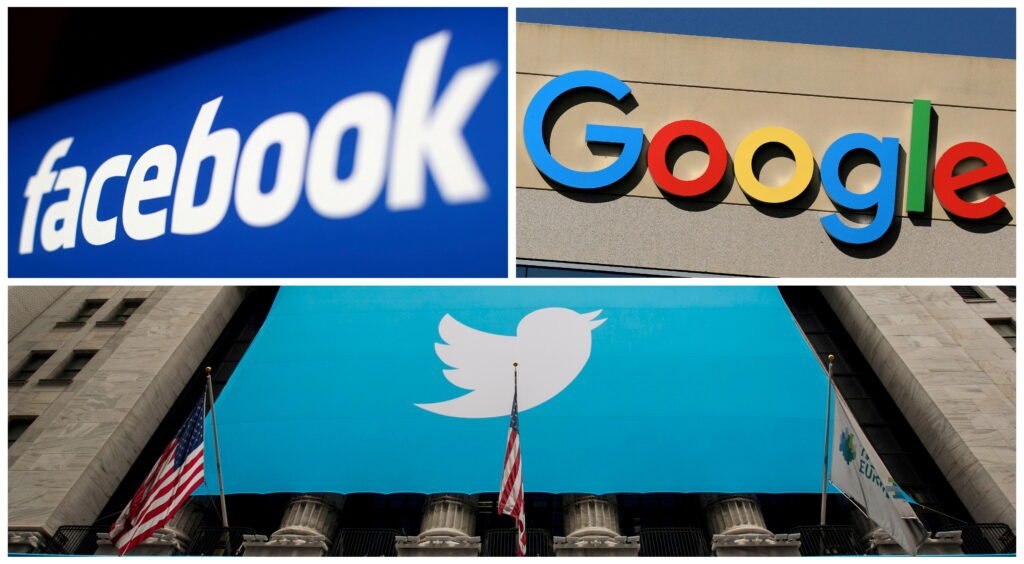Social media’s hold strengthens as Big Tech’s dominance grows. Explore the implications of this trend and stay informed with our latest insights
A solitary trillion-dollar organization controls Facebook, Instagram, Strings and WhatsApp. That centralization of computerized possession can make genuine mischief, as a new oversight question with Meta exposes.
Last week, Meta apologized in the wake of hindering connections by a charitable paper and a free columnist who distributed a report that condemned Facebook and blamed it for smothering presents related on environmental change.
Meta rejected that it was controlling substance and accused an unknown “security issue.”
Each and every connection — around 6,000 stories — that the Kansas Reflector had at any point presented on Facebook vanished from the stage on Thursday.
For seven hours, anybody attempting to post a Reflector interface was met with an advance notice that the site represented a security risk.
That is seven hours during which the Reflector staff had no clue about why Meta — a tech behemoth no significant distributer can overlook, given its hold on the most world’s most famous social destinations — had exploded years worth of computerized work as well as dinged the believability of the nearby paper, whose crowd was told, mistakenly, that its connections contained potential malware.
Before the day’s over, practically the Reflector’s all’s connections had returned on the web, save for one: an assessment piece that censured Facebook’s strategies around paid advancements.
To test hypothesis that that the Reflector’s space had some sort of safety issue, a Brooklyn-based writer, Marisa Kabas, requested consent to republish the message of that section on her own site.
In any case, sufficiently certain, when Kabas presented her own connection on the section on Strings, Meta hailed it as malevolent substance and brought it down.
The manager in-head of the Kansas Reflector, Sherman Smith, composed on Friday that Facebook representative Andy Stone “wouldn’t expand on how the misstep occurred and said there would be no great reason.”
“What was the security mistake? We don’t have any idea,” Kabas wrote in her relating of the circumstance. “What made the connections be impeded? We don’t have the foggiest idea.” And keeping in mind that the connections have been all reestablished “our trust has been subverted when individuals need little motivation to doubt the news.”
The Meta-refrain
The calamity represents one of the more poisonous issues of our Very Online Time that is in many cases disregarded in a bog of wearing administrative language out: the convergence of force in web-based entertainment.
One of the incongruities of the circumstance is that the main public assertion from Meta came Thursday night on X, site previously known as Twitter.
Normally, Kabas and the Reflector staff needed to move their grumblings to one of a handful of the public stages not worked by Meta, which left for the most part X and its more modest opponent Bluesky.
“Anybody included this previous week presently comprehends that placing our city discussion under the control of a solitary for-benefit business creates significant dangers for society all in all,” composed Dirt Wirestone, the Reflector’s viewpoint proofreader.
Obviously, Meta is routinely blamed for editing content by individuals across the political range — individuals who frequently misjudge that Meta is a business and not the Free Discourse Police. The distinction here is that Meta recognized it committed an error and eventually fixed it, though in a frustratingly dark way that left happy makers with a ton of inquiries.

Meta controls an entire bundle of the virtual entertainment environment, and that implies there aren’t much of contenders to keep it alert and aware. In the mean time, all of media depends on it since content makers need to get before perusers to get by.
With almost 4 billion month to month dynamic clients on its foundation — Facebook alone records for 3 billion — it’s not hard to see the reason why a few people need to split Meta up, or in any event make more grounded guidelines hold it back from elbowing every other person out the market.
Obviously, others contend that separating Meta wouldn’t be guaranteed to tackle the most serious issues with virtual entertainment — in particular that it propagates falsehood at an extraordinary speed and extension, wrecks teenagers’ psychological well-being and makes poisonous carefully protected areas that subvert the commitment of a vote based system.
Also, on the off chance that you beat down Meta, there might be no preventing one more tech goliath from making up for the shortfall.
We don’t have the foggiest idea what occurred inside Meta to set off an incorrect block of genuine news sources the week before.
However, what we can be sure of is that the organization’s command over what we see online can significantly affect this present reality. At the point when Meta chooses to decisively diminish reference traffic to news sources, as it did last year, there’s little anybody beyond Meta can do to push back.
Read More News
- Taiwan Earthquake: Chipmaking Industry Risks Heighten – Act Now!
- Kenyan Sensation Brian Chira’s Startling Farewell: TikTok Star’s Funeral Leaves Nation Stunned
Click here for the latest news of all over the world – Insightsyncs, your source of news.





